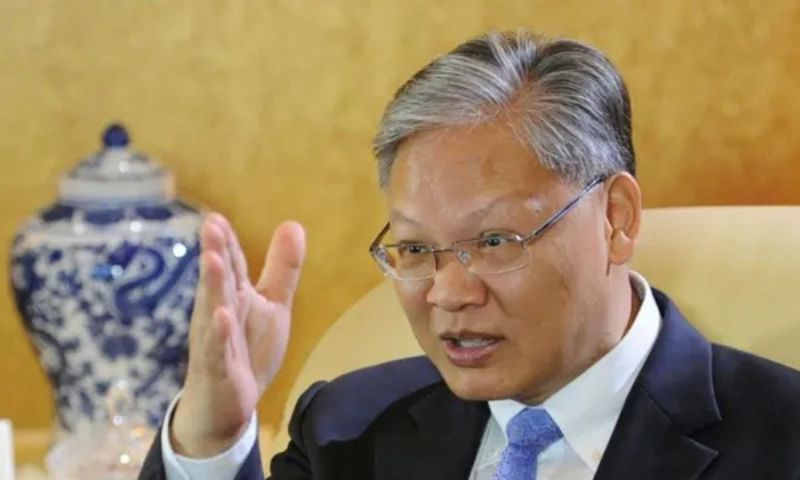
China’s ambassador to India, Xu Feihong, said on Tuesday, 29, that the country will not adopt dumping measures in response to the trade and tariff war with the United States.
The statement was published in an article in the Indian Express newspaper, in which the diplomat sought to dismiss fears that Chinese products at reduced prices are directed to other international markets, affecting local competitiveness.
The commercial dispute between the world’s two largest economies, intensified since the term of the term of former US President Donald Trump, resulted in reciprocal tariff elevations, with rates exceeding 100% on imported products between the two countries.
This scenario has generated uncertainties in global markets and concerns about redirecting Chinese surpluses for lower commercial barrier.
Last week, India announced a temporary rate of 12% on certain steel imports, in response to the growth of Chinese steel shipments at reduced prices.
The measure aims to protect the domestic steel industry, in view of the perception that competition with Chinese products would be pressuring local plants to reduce activities and consider job cuts.
In the article entitled “Resist Washington’s intimidation,” Xu Feihong said China is prioritizing the expansion of internal demand and increased consumption.
According to the ambassador, this strategy is aligned with international trade standards and will not imply unfair business practices.
“China strictly fulfills the subjects of subsidies and the market rules of the WTO,” wrote Xu. “We will not be involved in cruel market dumping or competition, nor will we disturb the industries and economic development of other countries.”
The statements were published at a time of growing tension in international trade, with several countries discussing measures to contain the flow of Chinese products considered below market value.
In addition to India, other economies have evaluated ways to protect their industries in the risk of international over -overseas caused by the slowdown of Chinese exports to the United States.
The Indian government’s official response to the Chinese ambassador’s statements has not been released so far. The Ministries of Commerce and Foreign Affairs of India were sought, but did not speak.
The commercial relationship between India and China has faced instability since the confrontation on the Himalayan border in 2020. The episode led India to impose restrictions on Chinese investments in the country and to review bilateral agreements in various areas. Despite persistent tensions, the two countries have been promoting recent efforts to restore diplomatic and economic dialogue.
The imposition of tariffs on Chinese steel integrates this context. India, the second largest worldwide producer of gross steel, faces pressure from national producers claiming losses arising from the importation of products at prices considered below production cost.
The policy adopted by the Indian government seeks to mitigate these impacts as structural measures are evaluated for the strengthening of local industry.
Studies from the steel industry indicate that the increase in chinese steel exports is associated with the slowdown of domestic demand in China and the need for companies to maintain production and flow levels. In reaction, countries with significant industrial presence, such as Vietnam, Indonesia and Türkiye, are also evaluating the adoption of tariffs or quotas on Chinese steel products.
The Chinese official position, expressed in the ambassador’s article, seeks to establish a narrative in accordance with the World Trade Organization (WTO) rules and rejects the possibility of practices that compromise the balance of international trade.
Still, analysts indicate that the overcapacity of the Chinese industry continues to generate distrust between the country’s leading business partners.
The impasse between China and the United States has been reflected in global supply chains, high tariffs and review of bilateral trade agreements.
Experts point out that the indirect effects of this conflict may last for years, with developing countries seeking to protect their economies from possible market distortions.
In the specific case of India, the government has sought to balance the protection of strategic sectors with the maintenance of diplomatic channels with Beijing. The recent approach between the two countries includes technical meetings, resumption of commercial initiatives and joint participation in multilateral forums.
The prospect of a higher flow of Chinese products to the Indian market, however, will continue to be monitored by local authorities and companies as the tariff war between Washington and Beijing follows without definitive solution.
Source: https://www.ocafezinho.com/2025/04/29/china-diz-que-nao-vai-entrar-em-dumping-na-guerra-comercial-com-os-eua/

